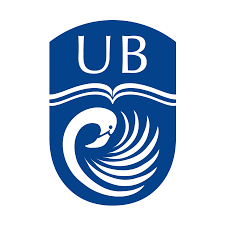The Stigma of Being "Haitian" in The Bahamas
DOI:
https://doi.org/10.15362/ijbs.v14i0.97Abstract
Haitian nationals have been migrating to and settling in The Bahamas for hundreds of years. However the presence of Haitians in The Bahamas has been an ever-increasing cause for concern. In 1963 the Haitian community accounted for 3.2% of the population; in 2000 it represented 7.1% and was numerically the largest migrant group in The Bahamas. The relatively high numbers of Haitian migrants on some Bahamian islands have raised fears that The Bahamas is being overwhelmed by this group; in some enumeration districts Haitian nationals account for more than 20% of the population. In common with migrant groups elsewhere, a stigma has become attached to being a Haitian migrant in the Bahamas. Primarily through the use of census data and newspaper articles, this paper attempts to explain this stigma. Haitian migrants are associated with illegal status, poor education, and poverty. Language is a barrier which prevents Haitian migrants from fully participating in society and makes them distinct from the general population. First-generation migrants may face the prospect of being state-less. The paper stresses the need for the resident community to ensure that the stigma does not result in marginalization and lead to a breakdown in relations between the Haitian and non-Haitian groups.References
Bain, B. (2005). Student nationality report. Ministry of Education, Planning and Research Section.
Bonimy, J. (2005, October 6). Violent prediction for Abaco shantytowns. The Nassau Guardian. http://archive.nassauguardian.net
Brathwaite, A. F., Brathwaite, V., Pratt, C., & Brathwaite, N. (2002). HIV infections in Grand Bahama, 1991-1995: A comparative analysis with 1985-1990. Bahamas Journal of Science 10 (1), 23-29.
Brodwin, P. (2000). Pentecostalism and the production of community in the Haitian Diaspora. http://www.uwm.edu/Dept/CLACS/resources/pubs/pdf/brodwin90.pdf
Brodwin, P. (2001). Marginality and cultural intimacy in a transnational Haitian community. http://www.uwm.edu/Dept/CLACS/resources/pubs/pdf/brodwin91.pdf
Brodwin, P. (2003). Pentecostalism in translation: Religion and the production of community in the Haitian Diaspora. American Ethnologist, 30(1). 85-101. https://doi.org/10.1525/ae.2003.30.1.85
Craton, M., & Saunders, G. (1998). The Bahamian self and the Haitian other: The history of Haitian migration. In Islanders in the stream: A history of the Bahamian people, vol. 2. From the ending of slavery to the twenty-first century. (pp. 450-469). University of Georgia Press.
Department of Statistics. (2002). Report of the 2000 census of population & housing.
Department of Statistics. (2004). Bahamas living conditions survey, 2001.
Dooley, B. (2004, October 4). Your name could put you in jail. New Statesman. p. 17. http://www.newstatesman.com/200410040009
Eugene, D. (2004, February 9). The plight of children born to Haitian parents in The Bahamas. The Tribune, p. 3A.
An eye opener [Editorial]. (2005, August 19). The Nassau Guardian. http://archive.nassauguardian.net
Ferguson, J. (2003). Migration in the Caribbean: Haiti, the Dominican Republic and beyond. http://www.minorityrights.org/admin/download/pdf/MRGCaribbeanReport.pdf
Goffman, E. (1963). Stigma: Notes on the management of spoiled identity. Prentice Hall.
Gros, J. (1996). Towards a taxonomy of failed states in the New World Order: Decaying Somalia, Liberia, Rwanda and Haiti. Third World Quarterly 7(3), 455-472. https://doi.org/10.1080/01436599615452
The Haitian problem [Editorial]. (2005, February 8). The Nassau Guardian. http://archive.nassauguardian.net
Harman, D. (2006). Haitian migrants face raising backlash next door. Christian Science Monitor, 98(40), p. 4.
Inciardi, J. A., Syvertsen, J. L., & Surratt, H. L. (2005). HIV/AIDS in the Caribbean basin. AIDS Care, 17(Supplement 1), 9-25. https://doi.org/10.1080/09540120500120955
Johnson, C. (2005, March 3). “Haitians are drain on society is overall feeling of Bahamians”. The Tribune, pp. 1C-2C.
Johnson, C. (2006, February 9). “I don’t want you to sit next to me with your Haitian self”. The Tribune, pp. 1C, 6C.
Leyburn, J. C. (1941). The Haitian people. Yale University Press.
Lightbourn, T. J. (2000). When diasporas discriminate: Idenity choices and anti-immigrant sentiment in the Bahamas (Doctoral dissertation, University of Michigan, 2000). Dissertation Abstracts International, 61, 1698.
Lightbourne, K. (2005, September 9). Market illegals return to work. The Nassau Guardian. http://archive.nassauguardian.net
Link, B. G., & Phelan, J. C. (2001). Conceptualising stigma. Annual Review of Sociology 27, 363-85. https://doi.org/10.1146/annurev.soc.27.1.363
Marshall, D. I. (1979). ‘The Haitian problem’: Illegal migration to the Bahamas. Institute of Social and Economic Research, University of the West Indies.
McWeeney, S. (1994). The “Haitian problem” in theBahamas at the close of the eighteenth century. Journal of the Bahamas Historical Society 16, 2-9.
St. Jacques, E. (2001). Today Haitians, tomorrow Bahamians: Reassessing the integration of Haitian immigrants in the Bahamas. Unpublished master’s thesis, University of Florida.
Small, M. (2004, August 26). Examining the impact of not belonging to any country. The Nassau Guardian. http://archive.nassauguardian.net
Stubbs, E. (1994). The impact of Haitian students on educational cost in Ministry schools within the Commonwealth of the Bahamas, 1991. Ministry of Education.
Taylor, M. C. (2005). Education for all: Addressing the educational needs of Haitians in the Bahamas. In Ministry of Education, 18th national education conference: Transforming Bahamian education for the 21st century (pp. 16-21). Ministry of Education.
Thompson, L. (2005, September 15). Immigrants get equal health care. The Nassau Guardian. http://archive.nassauguardian.net
Vedrine, B. (2005, August 23). Trying to fit in: Growing up in the Bahamas with Haitian parents. The Nassau Guardian. http://archive.nassauguardian.net
Waxman, C. J. (1977). The stigma of poverty. Pergamon.







